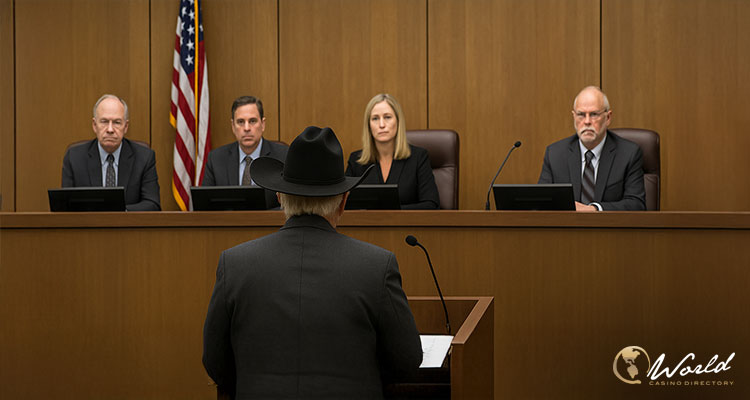Nevada’s top gaming regulators have affirmed a substantial punishment handed down earlier this year to horse trainer Ricardo Castillo Jr., deciding once again that his conduct warranted one of the toughest sanctions issued in the state’s horse-racing history. The Nevada Gaming Commission voted unanimously to maintain a $100,000 fine and a minimum 15-year racing ban tied to drug violations discovered at the Elko County Fairgrounds in summer 2024.
The decision supports the Nevada Gaming Control Board’s earlier ruling, which itself stemmed from Castillo’s appeal of the Board of Stewards’ initial disciplinary action — a $4,000 fine and a four-year license ineligibility period, the maximum the stewards could impose. After reviewing the case, the Control Board chose to apply more severe penalties, prompting Castillo to pursue one final appeal before the Commission.
Drug Tests Trigger Severe Response From Regulators
Four of Castillo’s horses — Bnb Hasta La Luna, Famous Prizes, Dr. B, and Bnb Lightning McQueen — won their respective races over Labor Day weekend and together collected $17,700 in purses. Immediately after the victories, each horse underwent standard blood and urine testing. The results revealed methamphetamine and amphetamine in the animals’ systems, and two horses tested positive for Tramadol. Regulators later noted that the drugging posed significant risks not only to the animals themselves but also to the jockeys riding them.
The horses were subsequently disqualified, and regulators emphasized that the case represented the second doping incident linked to Nevada county fair racing events. Earlier in the year, trainer Alvaro Torres had been fined $5,000 and barred from applying for a license for five years after one of his horses tested positive for cocaine at the same venue.
During the most recent hearing, Gaming Commission members stressed that Castillo’s situation involved multiple drug-positive horses across different races — a key factor distinguishing his case from Torres’. Commissioner Abbi Silver reiterated those concerns, adding that the situation created dangerous conditions that could have caused catastrophic accidents on the track. “They didn’t seem to be trying to benefit on the betting side of it,” she said, according to Las Vegas Review-Journal. “But I’m concerned with the safety side of it to the horses and to the jockeys, and not only for those horses, but the ones that surround it. Because obviously, collisions can happen if there’s a horse that’s going nuts because it’s drugged.”
Castillo and Attorney Argue for Leniency — to No Avail
Castillo, who had not appeared during the June hearing before the Control Board, attended the latest session alongside attorney Jennifer Gaynor. Gaynor argued that the punishment was extreme when compared with past cases, pointing out that “There has never been a fine of this magnitude in a horse racing case in Nevada or anywhere else we could find.” She emphasized that standard penalties typically involve fines around $1,000 and suspensions lasting between 30 and 180 days. Gaynor also noted that Castillo had a clean disciplinary record before this incident and that all four horses remain in good health.
Gaynor insisted the sanctions would effectively remove Castillo from the racing world nationwide because other states honor Nevada’s disciplinary decisions. The financial consequences were also significant, she said, considering Castillo earned roughly $1,500 a month as a trainer. “If Mr. Castillo isn’t allowed to work as a trainer, he doesn’t know how he will be able to pay the fine,” she told commissioners.
Castillo addressed the panel briefly, describing his long-standing passion for the industry. “Unless you are at the highest level, it’s not a big-money game,” he said. “A trainer that makes $1,500 a month in salary and prize money, which was never a lot.”
Commissioners, however, were unconvinced. Chair Jennifer Togliatti underscored the danger inherent in the situation and emphasized deterrence: “I have zero problem with the 15 years,” she said. She added that if a serious injury or fatality had occurred, the consequences for Castillo could have been far more severe.
With a 5-0 vote, commissioners concluded that the Control Board acted appropriately, leaving Castillo’s penalties completely intact.



